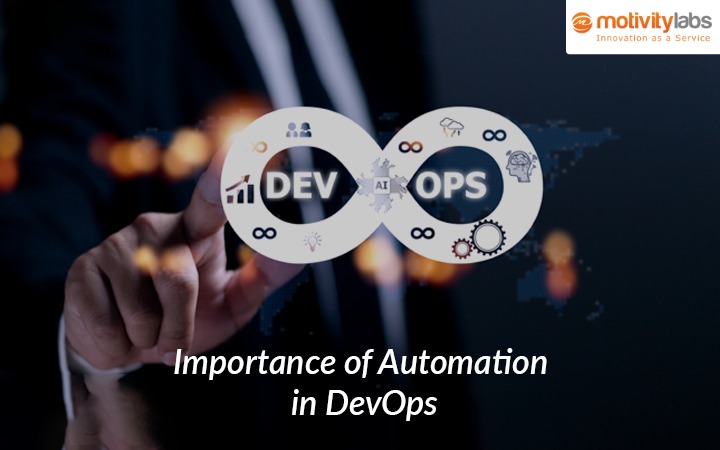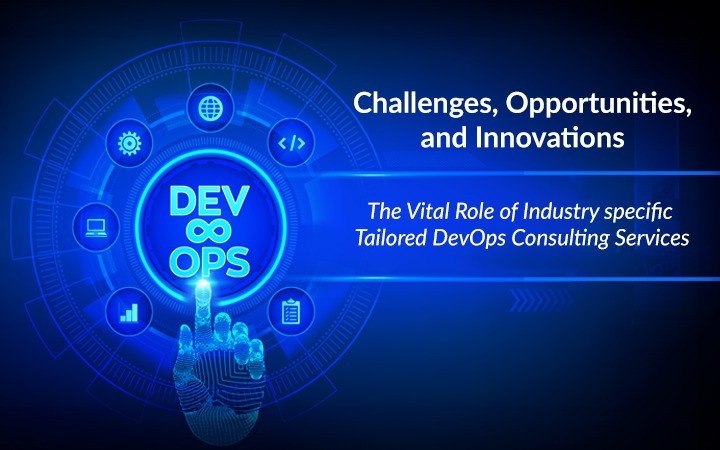In the realm of software development and operations, DevOps has emerged as a game-changer, revolutionizing how teams collaborate, deploy, and manage applications. At the heart of DevOps lies automation—a key principle that drives efficiency, consistency, and agility across the entire software development lifecycle. In this blog, we’ll explore the significance of automation in DevOps, the tools available, and how businesses can leverage DevOps automation services to streamline their operations.
DevOps Automation Tools
DevOps automation involves the use of automated processes, tools, and frameworks to facilitate collaboration between development, operations, and quality assurance teams. By automating repetitive tasks, manual interventions, and deployment workflows, DevOps teams can accelerate software delivery, improve quality, and reduce the risk of errors.
Several automation tools play a pivotal role in the DevOps ecosystem, empowering teams to automate various aspects of the software delivery pipeline:
- Continuous Integration (CI) Tools: CI tools like Jenkins, Travis CI, and GitLab CI automate the process of integrating code changes into a shared repository, running automated tests, and providing feedback to developers.
- Configuration Management Tools: Tools such as Ansible, Puppet, and Chef enable teams to automate the provisioning, configuration, and management of infrastructure and application environments.
- Containerization Platforms: Platforms like Docker and Kubernetes facilitate the automation of application deployment, scaling, and management by encapsulating applications and their dependencies into lightweight, portable containers.
- Orchestration Tools: Orchestration tools like Terraform and AWS CloudFormation automate the provisioning and management of cloud infrastructure, enabling infrastructure as code (IaC) practices.
Why DevOps Automation is Important?
Speed and Efficiency
DevOps automation accelerates the software delivery process by reducing manual interventions and eliminating bottlenecks. Automated CI/CD pipelines enable teams to deploy code changes rapidly, iterate quickly, and respond to customer feedback in real-time.
Consistency and Reliability
Automation ensures consistency and repeatability in the software deployment process, minimizing the risk of human errors and configuration drift. Automated testing, deployment, and rollback mechanisms help maintain the integrity and reliability of applications in production environments.
Scalability and Flexibility
DevOps automation enables organizations to scale their infrastructure and applications dynamically to meet changing business demands. Automation tools allow for the seamless provisioning and deployment of resources across on-premises and cloud environments, ensuring optimal resource utilization and cost efficiency.
Collaboration and Transparency
By automating communication, feedback loops, and collaboration channels, DevOps automation fosters a culture of transparency, accountability, and shared ownership across cross-functional teams. Automated notifications, dashboards, and metrics enable stakeholders to monitor project progress, identify issues, and make data-driven decisions effectively.
How DevOps Automation Services help?
In today’s digital landscape, numerous DevOps automation services cater to the diverse needs of businesses across industries:
- Managed CI/CD Services: Managed CI/CD services like CircleCI, Travis CI, and GitLab CI provide cloud-based platforms for automating the continuous integration and delivery of code changes.
- Infrastructure Automation Services: Infrastructure automation services such as AWS CloudFormation, Google Cloud Deployment Manager, and Azure Resource Manager enable organizations to automate the provisioning and management of cloud resources and infrastructure.
- Containerization and Orchestration Services: Containerization and orchestration services like Amazon ECS, Google Kubernetes Engine (GKE), and Azure Kubernetes Service (AKS) simplify the deployment and management of containerized applications at scale.
- Configuration Management Services: Configuration management services like AWS Systems Manager, Puppet Enterprise, and Ansible Tower offer centralized platforms for automating the configuration, compliance, and patch management of servers and applications.
FAQs
What is automation in DevOps?
Automation in DevOps refers to the use of automated processes, tools, and frameworks to streamline software development, deployment, and operations tasks. It involves automating repetitive tasks, workflows, and manual interventions to accelerate the delivery of high-quality software solutions.
What are the benefits of DevOps automation?
The benefits of DevOps automation include increased speed and efficiency, improved consistency and reliability, enhanced scalability and flexibility, and better collaboration and transparency across teams. Automation helps organizations reduce time-to-market, minimize errors, and adapt to changing business requirements more effectively.
What are best practices for DevOps automation?
Best practices for DevOps automation include:
- Automating repetitive tasks and manual interventions to streamline workflows.
- Implementing continuous integration and continuous delivery (CI/CD) pipelines to automate the software delivery process.
- Embracing infrastructure as code (IaC) practices to automate the provisioning and management of infrastructure and application environments.
- Monitoring and measuring key performance indicators (KPIs) to identify areas for optimization and improvement.
- Fostering a culture of collaboration, experimentation, and continuous learning across cross-functional teams.
In conclusion, automation lies at the core of DevOps, driving efficiency, reliability, and innovation in software development and operations. By embracing DevOps automation and leveraging automation tools and services, businesses can accelerate their digital transformation journey and stay ahead in today’s competitive landscape.



